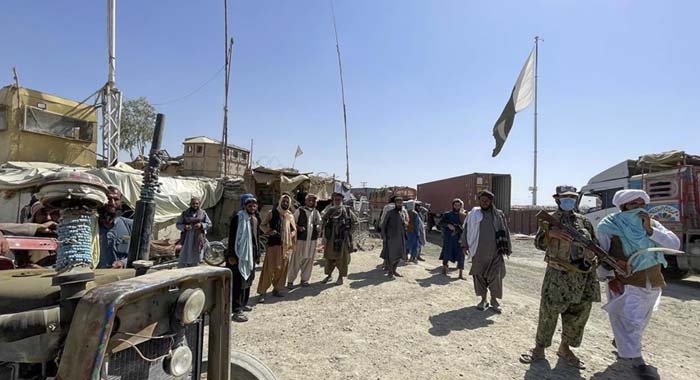The Taliban regime in Afghanistan has admitted relocating families linked to the banned Tehreek-e-Taliban Pakistan (TTP) to central Afghanistan, a move seen as further evidence of Kabul’s continued patronage of anti-Pakistan militants despite repeated assurances of cooperation on counterterrorism.
In an online press conference following the collapse of Taliban–Pakistan talks in Istanbul, the Taliban spokesperson Zabihullah Mujahid confirmed that “tribal migrant families” fearing action in Pakistan had been transferred from areas near the Durand Line to central Afghanistan. He said the so-called “migrants” were shifted to camps built by the Taliban “to ensure better monitoring and security.”
Diplomatic and security officials in Islamabad, however, view the statement as a veiled acknowledgment that the Taliban are continuing to shelter and protect TTP-affiliated individuals. Officials maintain that the TTP and its splinter groups have long used Afghan soil to plan and execute attacks targeting Pakistan’s security forces and civilians.
According to investigative findings by Afghanistan International, the relocation carried out in January 2025 was coordinated by several Taliban ministries, including the Refugees Commission, Interior Ministry, and the Ministry of Tribes and Border Affairs. The report alleged that the Taliban provided stipends, relocation assistance, and housing to families of TTP and Hafiz Gul Bahadur group members who had fled Pakistani operations in Khost and Paktika provinces.
Sources cited in the report said that these families were resettled under pseudonyms and granted benefits based on identification cards issued by the TTP itself. The Taliban administration has also reportedly built fortified residential compounds for these families in Ghazni’s Nawa, Qarabagh, and Waghaz districts, complete with plans for schools, health centres, and seminaries—indicating long-term settlement plans.
Security for these camps, according to the report, is being maintained by TTP militants, who have deployed their own guards and set up administrative structures under Taliban protection.
Observers believe this development directly contradicts Taliban commitments under international assurances not to allow Afghan territory to be used by terrorist groups. Pakistani officials have repeatedly called on the Taliban to dismantle the TTP’s safe havens, stressing that the presence of these militants continues to destabilize the region.
A senior Pakistani official, commenting on the Taliban admission, said: “This only reinforces what Pakistan has consistently warned the world about that the TTP enjoys full freedom of movement and operational space inside Afghanistan under Taliban patronage.”
He added that the so-called “relocation” was “a deliberate attempt to shield TTP families from Pakistan’s counterterrorism measures while allowing the group to reorganize and launch further attacks.” The revelation has once again raised serious concerns about the Taliban’s unwillingness to act against terrorist outfits that threaten regional peace, despite their public commitments to the contrary.





